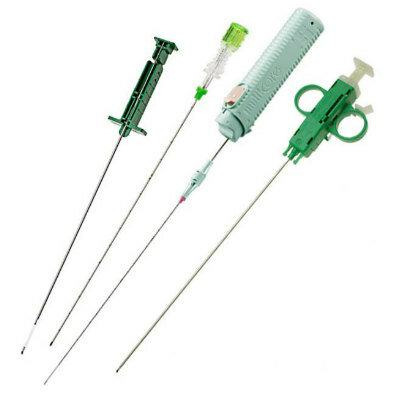Preoperative Intranasal Insulin Curbs Postoperative Delirium
|
By HospiMedica International staff writers Posted on 14 Apr 2021 |

Image: Insulin administered before surgery can reduce delirium occurrence (Photo courtesy of Alamy)
Administration of intranasal insulin before gastrointestinal (GI) surgery in elderly patients helps protect them against postoperative delirium (POD), according to a new study.
Researchers at The General Hospital of Western Theater Command (GHWTC; Chengdu, China) and Fourth Military Medical University (FMMU; Xi'an, China) conducted a randomized controlled study of 90 elderly patients undergoing laparoscopic radical GI tumor resection under general anesthesia. Patients were randomly divided into a control group (0.5 mL intranasal saline) or an insulin group (20 U/0.5 mL insulin administered intranasally) for two days prior to surgery, with 45 patients in each group. Incidence of delirium was measured at postoperative day one, three, and five.
The results showed that patients who received preoperative intranasal insulin were significantly less likely to develop POD within five days of surgery (12.5% versus 47.5%, respectively). The incidence of POD decreased in both groups over time, and was no longer significantly different on postoperative day five. In addition, repeated intranasal insulin administration before surgery was associated with reduced levels of several proinflammatory markers, including interleukin-6, tumor necrosis factor-alpha (TNF)-α, and interleukin-1-beta. The study was published on February 23, 2021, in American Journal of Geriatric Psychiatry.
“Age is a key risk factor for postoperative delirium (POD), which may occur in up to 54% of elderly patients having surgery for GI cancer,” said corresponding author Gu Gong, MD, of GHWTC, in an email to Reuters Health. “Nasal administration of insulin may reduce the incidence of postoperative delirium by increasing cerebral blood flow, reducing inflammation, improving sleep-wake cycle disorders, reducing tau protein hyperphosphorylation, and reducing amyloid-beta deposition.”
Delirium is a serious postoperative complication with long-term sequelae for patients and families, including persistent cognitive dysfunction, increased hospital length of stay, and a higher mortality risk. Inflammation and hyperglycemia have been identified as contributing factors to postoperative delirium. On the other hand, insulin, a peptide hormone naturally produced by β cells of the pancreatic islets that is important for blood glucose metabolism, has been shown to decrease inflammation post-operatively.
Related Links:
Fourth Military Medical University
Researchers at The General Hospital of Western Theater Command (GHWTC; Chengdu, China) and Fourth Military Medical University (FMMU; Xi'an, China) conducted a randomized controlled study of 90 elderly patients undergoing laparoscopic radical GI tumor resection under general anesthesia. Patients were randomly divided into a control group (0.5 mL intranasal saline) or an insulin group (20 U/0.5 mL insulin administered intranasally) for two days prior to surgery, with 45 patients in each group. Incidence of delirium was measured at postoperative day one, three, and five.
The results showed that patients who received preoperative intranasal insulin were significantly less likely to develop POD within five days of surgery (12.5% versus 47.5%, respectively). The incidence of POD decreased in both groups over time, and was no longer significantly different on postoperative day five. In addition, repeated intranasal insulin administration before surgery was associated with reduced levels of several proinflammatory markers, including interleukin-6, tumor necrosis factor-alpha (TNF)-α, and interleukin-1-beta. The study was published on February 23, 2021, in American Journal of Geriatric Psychiatry.
“Age is a key risk factor for postoperative delirium (POD), which may occur in up to 54% of elderly patients having surgery for GI cancer,” said corresponding author Gu Gong, MD, of GHWTC, in an email to Reuters Health. “Nasal administration of insulin may reduce the incidence of postoperative delirium by increasing cerebral blood flow, reducing inflammation, improving sleep-wake cycle disorders, reducing tau protein hyperphosphorylation, and reducing amyloid-beta deposition.”
Delirium is a serious postoperative complication with long-term sequelae for patients and families, including persistent cognitive dysfunction, increased hospital length of stay, and a higher mortality risk. Inflammation and hyperglycemia have been identified as contributing factors to postoperative delirium. On the other hand, insulin, a peptide hormone naturally produced by β cells of the pancreatic islets that is important for blood glucose metabolism, has been shown to decrease inflammation post-operatively.
Related Links:
Fourth Military Medical University
Latest Surgical Techniques News
- Porous Gel Sponge Facilitates Rapid Hemostasis and Wound Healing
- Novel Rigid Endoscope System Enables Deep Tissue Imaging During Surgery
- Robotic Nerve ‘Cuffs’ Could Treat Various Neurological Conditions
- Flexible Microdisplay Visualizes Brain Activity in Real-Time To Guide Neurosurgeons

- Next-Gen Computer Assisted Vacuum Thrombectomy Technology Rapidly Removes Blood Clots
- Hydrogel-Based Miniaturized Electric Generators to Power Biomedical Devices
- Custom 3D-Printed Orthopedic Implants Transform Joint Replacement Surgery
- Wearable Technology Monitors and Analyzes Surgeons' Posture during Long Surgical Procedures
- Cutting-Edge Imaging Platform Detects Residual Breast Cancer Missed During Lumpectomy Surgery
- Computational Models Predict Heart Valve Leakage in Children
- Breakthrough Device Enables Clear and Real-Time Visual Guidance for Effective Cardiovascular Interventions
- World’s First Microscopic Probe to Revolutionize Early Cancer Diagnosis
- World’s Smallest Implantable Brain Stimulator Demonstrated in Human Patient

- Robotically Assisted Lung Transplants Could Soon Become a Reality
- AI to Provide Heart Transplant Surgeons with New Decision-Making Data
- New Surgical Tool Empowers Precision and Confidence in Operating Room
Channels
Artificial Intelligence
view channel
AI-Powered Algorithm to Revolutionize Detection of Atrial Fibrillation
Atrial fibrillation (AFib), a condition characterized by an irregular and often rapid heart rate, is linked to increased risks of stroke and heart failure. This is because the irregular heartbeat in AFib... Read more
AI Diagnostic Tool Accurately Detects Valvular Disorders Often Missed by Doctors
Doctors generally use stethoscopes to listen for the characteristic lub-dub sounds made by heart valves opening and closing. They also listen for less prominent sounds that indicate problems with these valves.... Read moreCritical Care
view channel
Stretchable Microneedles to Help In Accurate Tracking of Abnormalities and Identifying Rapid Treatment
The field of personalized medicine is transforming rapidly, with advancements like wearable devices and home testing kits making it increasingly easy to monitor a wide range of health metrics, from heart... Read more
Machine Learning Tool Identifies Rare, Undiagnosed Immune Disorders from Patient EHRs
Patients suffering from rare diseases often endure extensive delays in receiving accurate diagnoses and treatments, which can lead to unnecessary tests, worsening health, psychological strain, and significant... Read more
On-Skin Wearable Bioelectronic Device Paves Way for Intelligent Implants
A team of researchers at the University of Missouri (Columbia, MO, USA) has achieved a milestone in developing a state-of-the-art on-skin wearable bioelectronic device. This development comes from a lab... Read more
First-Of-Its-Kind Dissolvable Stent to Improve Outcomes for Patients with Severe PAD
Peripheral artery disease (PAD) affects millions and presents serious health risks, particularly its severe form, chronic limb-threatening ischemia (CLTI). CLTI develops when arteries are blocked by plaque,... Read morePatient Care
view channelFirst-Of-Its-Kind Portable Germicidal Light Technology Disinfects High-Touch Clinical Surfaces in Seconds
Reducing healthcare-acquired infections (HAIs) remains a pressing issue within global healthcare systems. In the United States alone, 1.7 million patients contract HAIs annually, leading to approximately... Read more
Surgical Capacity Optimization Solution Helps Hospitals Boost OR Utilization
An innovative solution has the capability to transform surgical capacity utilization by targeting the root cause of surgical block time inefficiencies. Fujitsu Limited’s (Tokyo, Japan) Surgical Capacity... Read more
Game-Changing Innovation in Surgical Instrument Sterilization Significantly Improves OR Throughput
A groundbreaking innovation enables hospitals to significantly improve instrument processing time and throughput in operating rooms (ORs) and sterile processing departments. Turbett Surgical, Inc.... Read moreHealth IT
view channel
Machine Learning Model Improves Mortality Risk Prediction for Cardiac Surgery Patients
Machine learning algorithms have been deployed to create predictive models in various medical fields, with some demonstrating improved outcomes compared to their standard-of-care counterparts.... Read more
Strategic Collaboration to Develop and Integrate Generative AI into Healthcare
Top industry experts have underscored the immediate requirement for healthcare systems and hospitals to respond to severe cost and margin pressures. Close to half of U.S. hospitals ended 2022 in the red... Read more
AI-Enabled Operating Rooms Solution Helps Hospitals Maximize Utilization and Unlock Capacity
For healthcare organizations, optimizing operating room (OR) utilization during prime time hours is a complex challenge. Surgeons and clinics face difficulties in finding available slots for booking cases,... Read more
AI Predicts Pancreatic Cancer Three Years before Diagnosis from Patients’ Medical Records
Screening for common cancers like breast, cervix, and prostate cancer relies on relatively simple and highly effective techniques, such as mammograms, Pap smears, and blood tests. These methods have revolutionized... Read morePoint of Care
view channel
Critical Bleeding Management System to Help Hospitals Further Standardize Viscoelastic Testing
Surgical procedures are often accompanied by significant blood loss and the subsequent high likelihood of the need for allogeneic blood transfusions. These transfusions, while critical, are linked to various... Read more
Point of Care HIV Test Enables Early Infection Diagnosis for Infants
Early diagnosis and initiation of treatment are crucial for the survival of infants infected with HIV (human immunodeficiency virus). Without treatment, approximately 50% of infants who acquire HIV during... Read more
Whole Blood Rapid Test Aids Assessment of Concussion at Patient's Bedside
In the United States annually, approximately five million individuals seek emergency department care for traumatic brain injuries (TBIs), yet over half of those suspecting a concussion may never get it checked.... Read more
New Generation Glucose Hospital Meter System Ensures Accurate, Interference-Free and Safe Use
A new generation glucose hospital meter system now comes with several features that make hospital glucose testing easier and more secure while continuing to offer accuracy, freedom from interference, and... Read moreBusiness
view channel
Johnson & Johnson Acquires Cardiovascular Medical Device Company Shockwave Medical
Johnson & Johnson (New Brunswick, N.J., USA) and Shockwave Medical (Santa Clara, CA, USA) have entered into a definitive agreement under which Johnson & Johnson will acquire all of Shockwave’s... Read more















